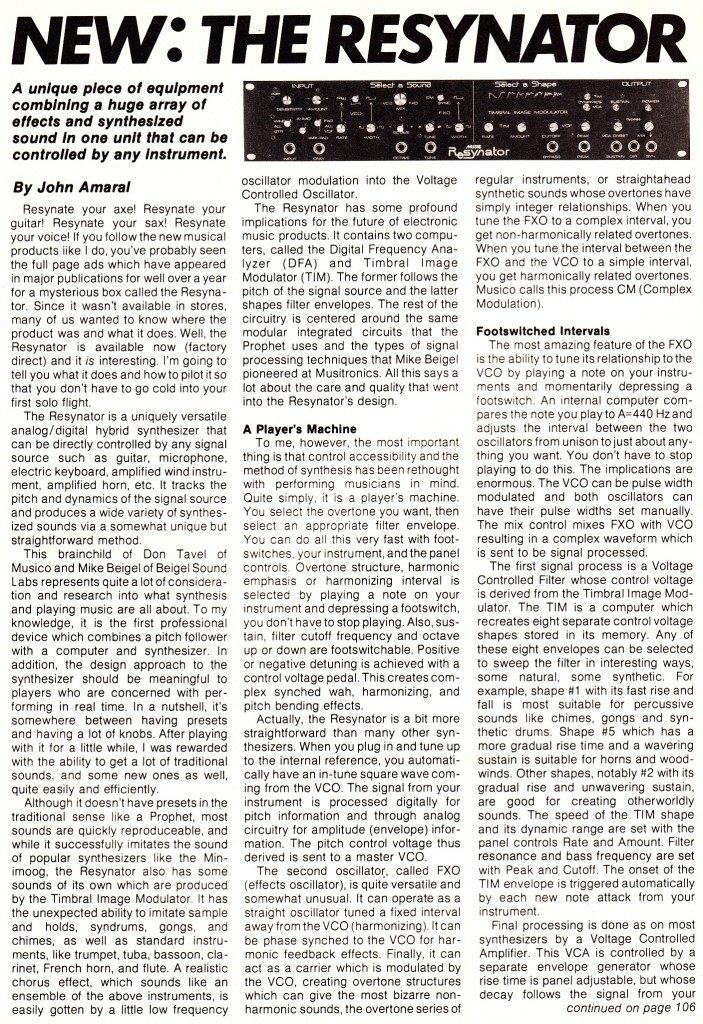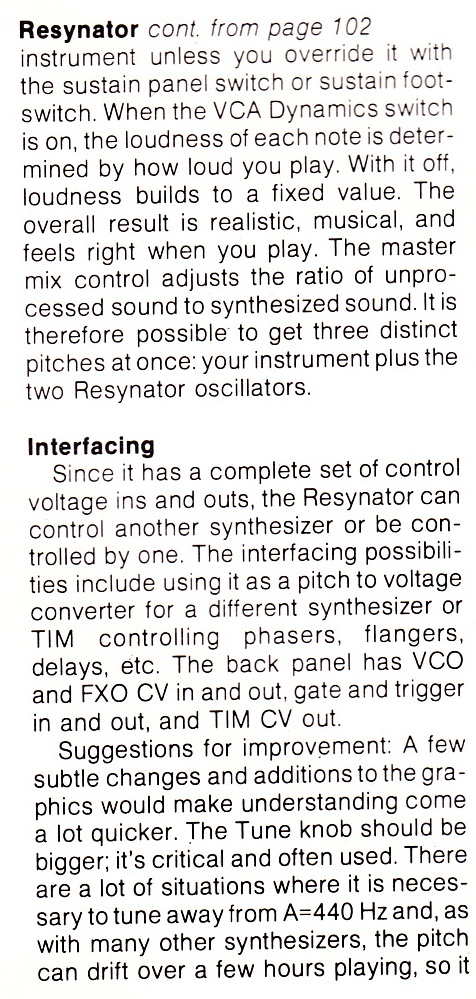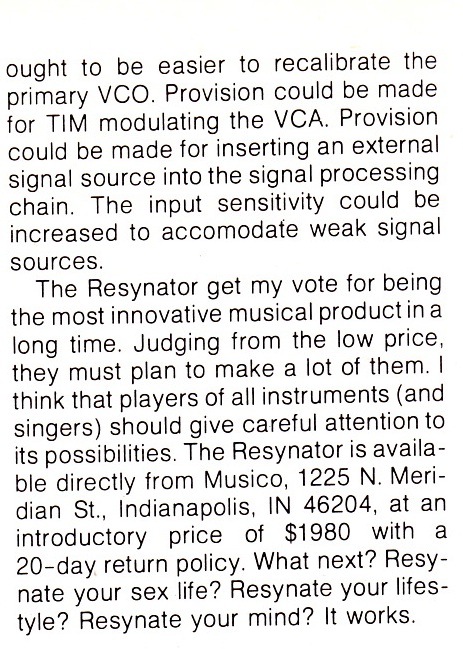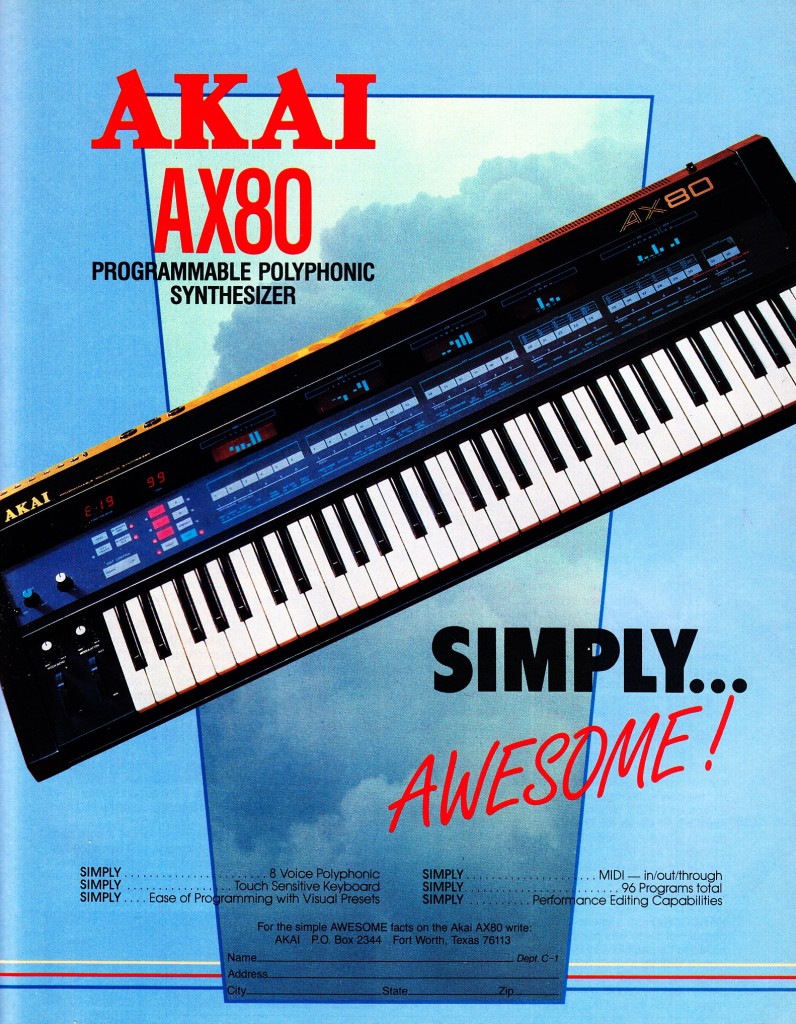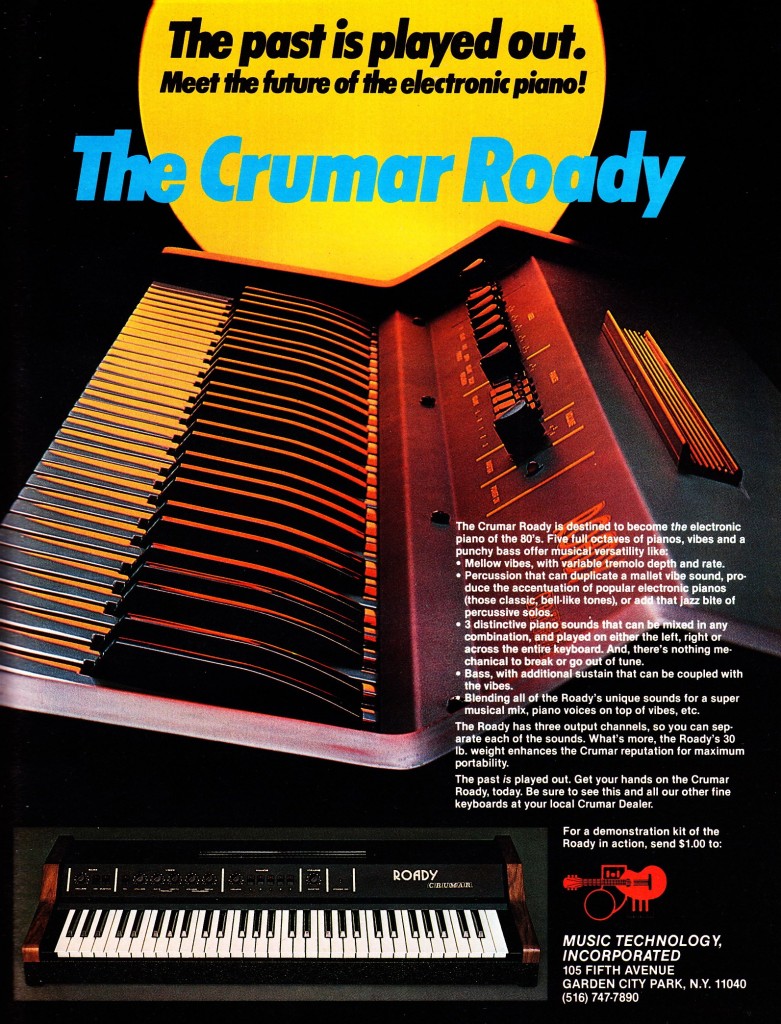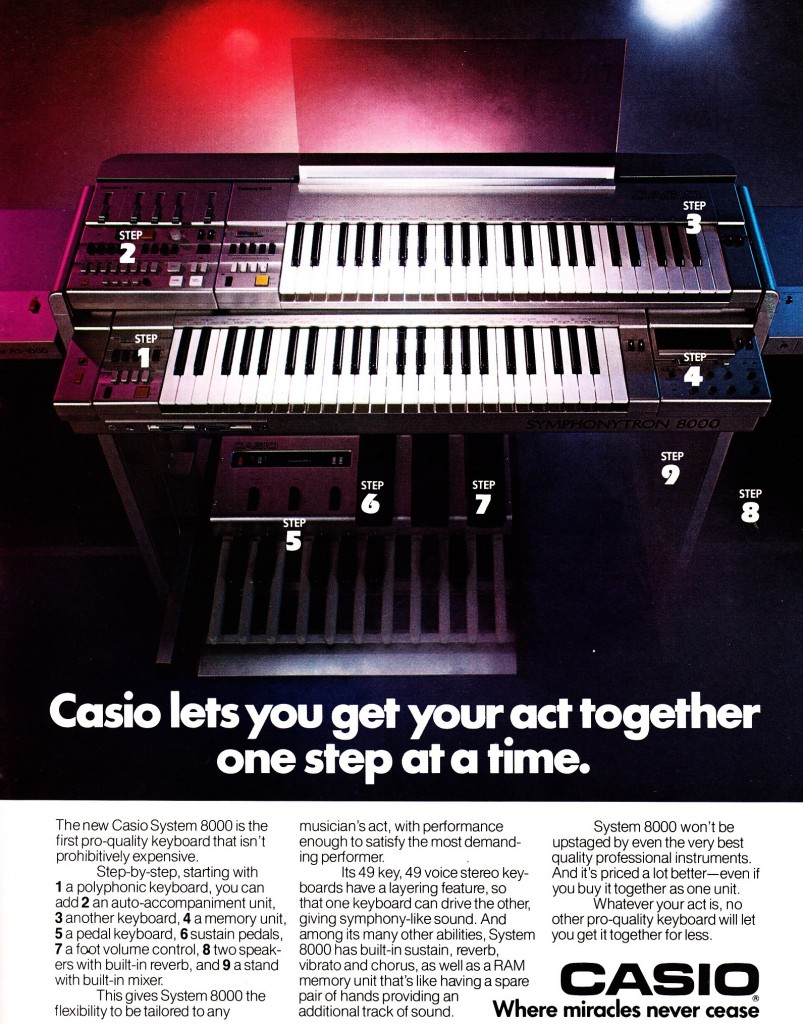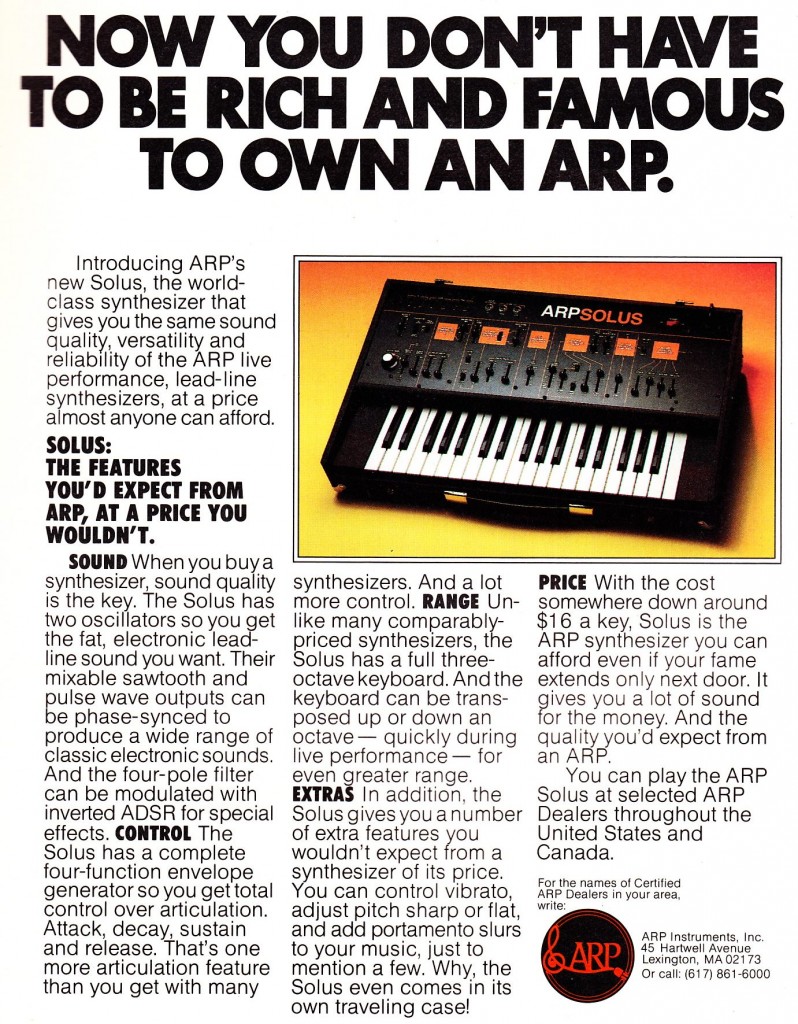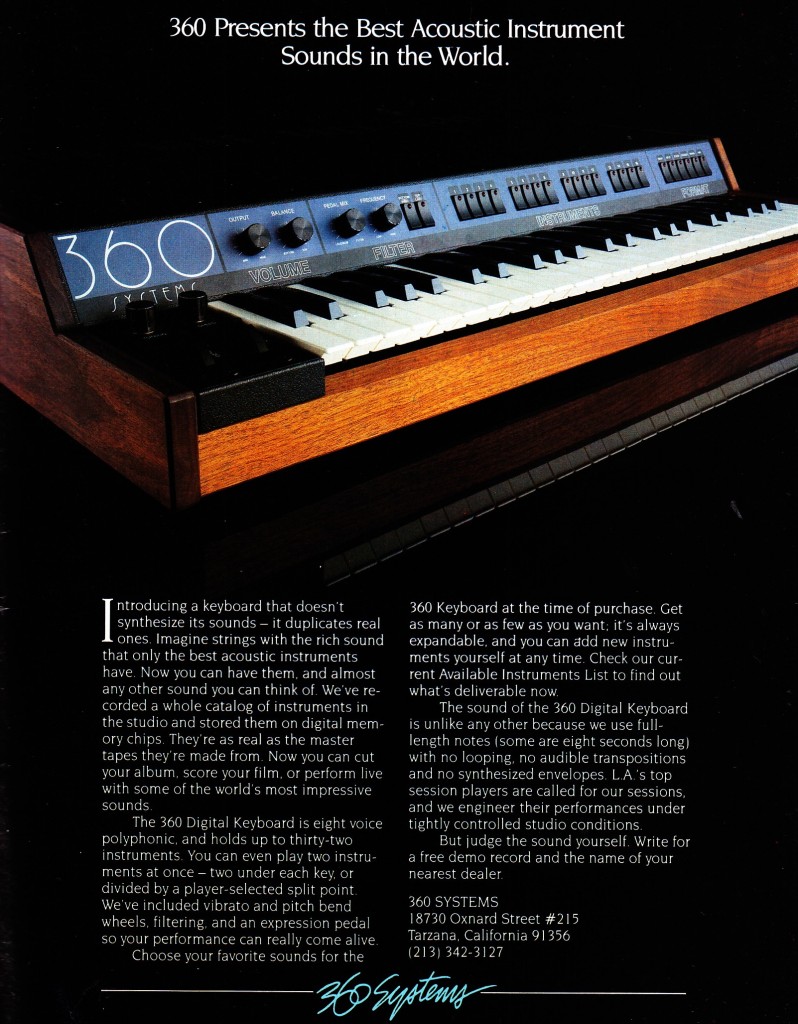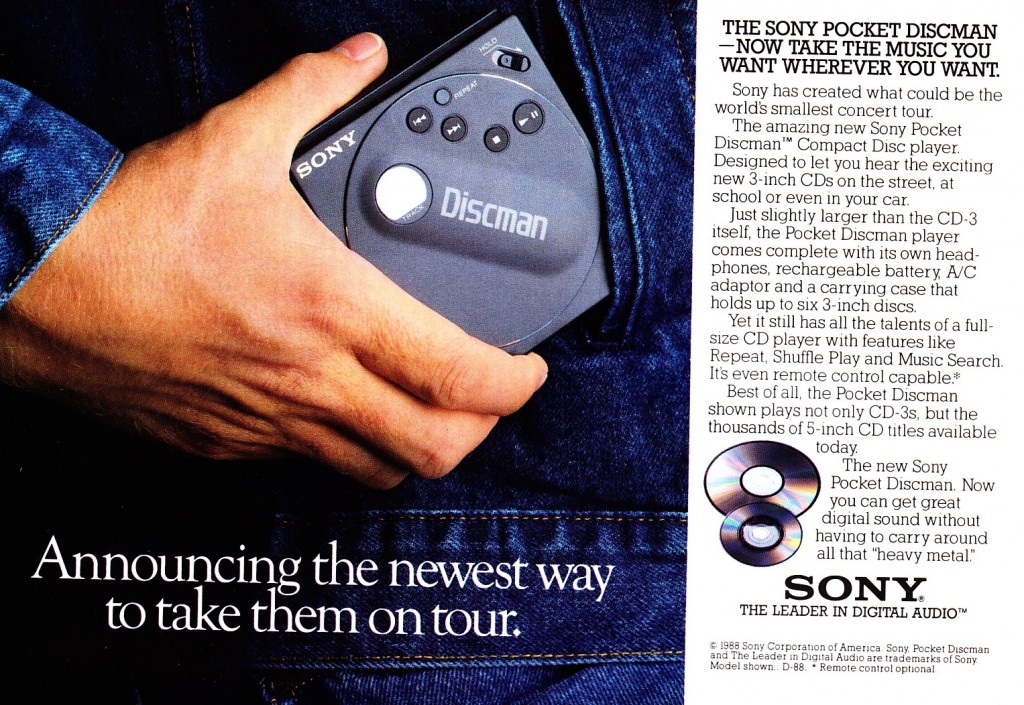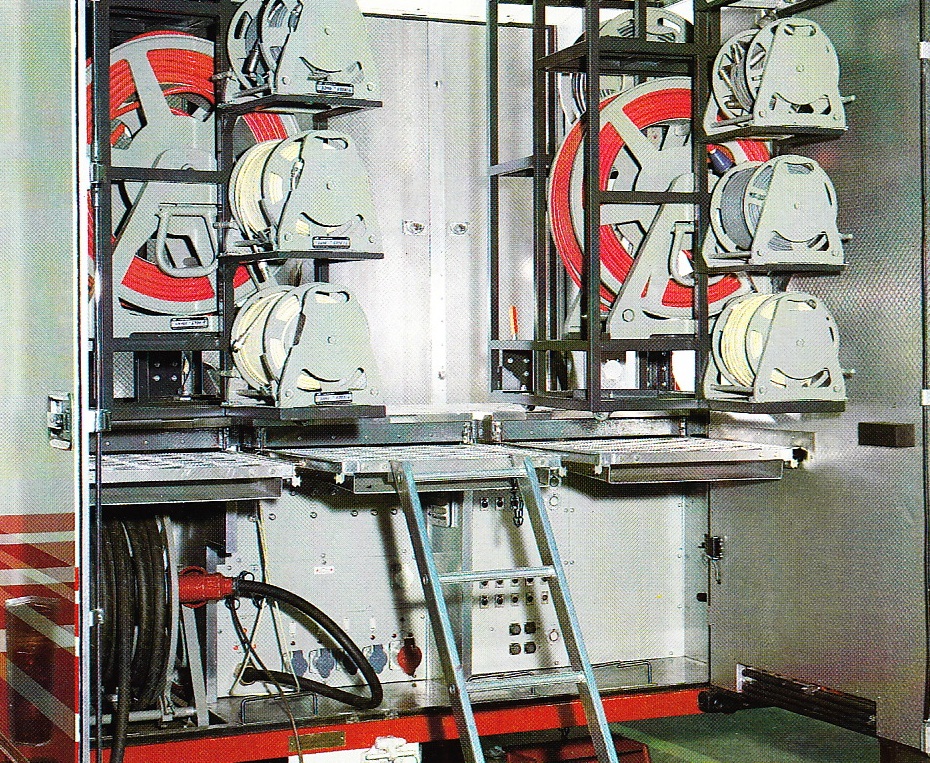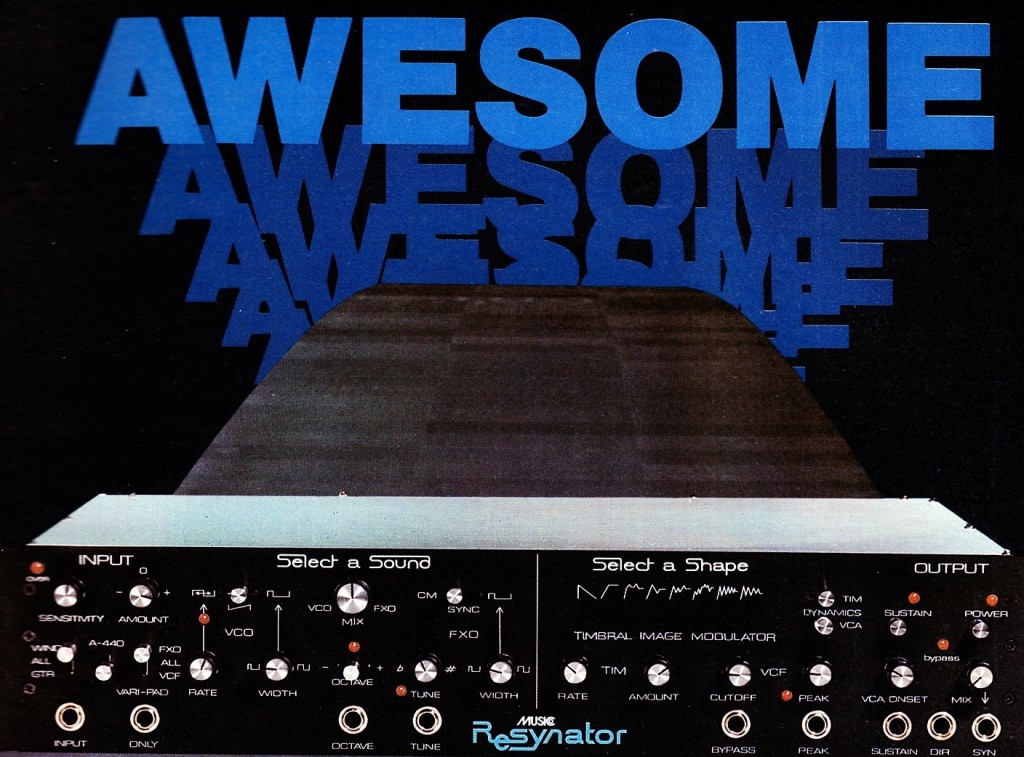 How y’all doing. Found an odd lil bit from 1980’s synth-land: the Resynator, from “Musico.” Yup that was the name of the company that created this $2000 device ($5,700 at the pump today, buddy). Anyhow, the Resynator is a fascinating pitch-and-envelope-tracking synthesizer (monophonic, I am sure) that used digital signal processing (unlike, say, the Korg MS20 of the same era, which could also track pitch and envelope, but was completely analog -and much cheaper). So, yeah, you could patch any monophonic audio signal into the Resynator and get a synth-sound on the output. But oh it’s so much more complicated than that. Read on, in this 1980 review by one John Amaral…
How y’all doing. Found an odd lil bit from 1980’s synth-land: the Resynator, from “Musico.” Yup that was the name of the company that created this $2000 device ($5,700 at the pump today, buddy). Anyhow, the Resynator is a fascinating pitch-and-envelope-tracking synthesizer (monophonic, I am sure) that used digital signal processing (unlike, say, the Korg MS20 of the same era, which could also track pitch and envelope, but was completely analog -and much cheaper). So, yeah, you could patch any monophonic audio signal into the Resynator and get a synth-sound on the output. But oh it’s so much more complicated than that. Read on, in this 1980 review by one John Amaral…
Author: chris
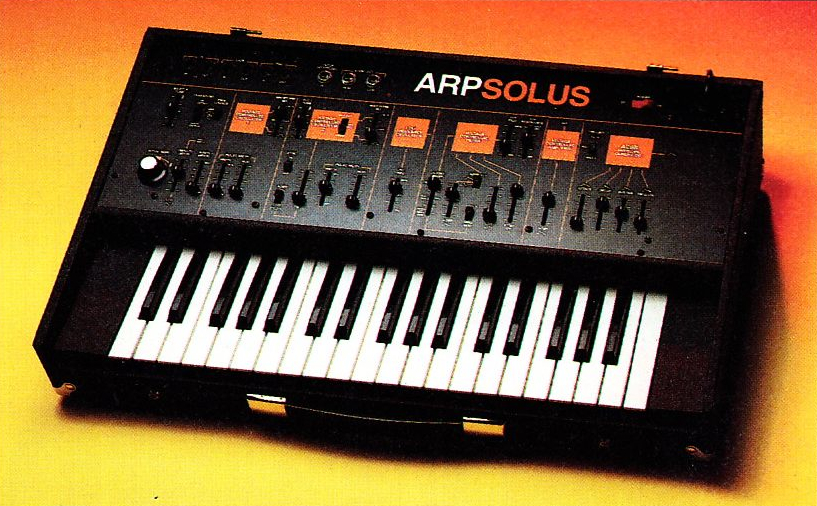 Today: just some offbeat keys+synths that caught my eye; i’ve never come across any of these in the shops+stages+studios of my corporeal reality so I think perhaps uncommon items? Srry, it’s early. About to head to the LAST FLEA MKT OF THE YR. Bittersweet times. Aie, I recall salad-days when April was young and barkers descended on New Milford plain to hawk goods of dubious origin. Like the sun, the tide, and the pork-belly market, that time will rise again I suppose. Below: the Akai AX-80 synth c. 1985, the Crumar Rhody ‘electronic piano’ of 1980, the fascinating Casio 8000 modular…casio…system of ’84, the 1980 ARP Solus (also above), and the 360 Systems ‘Digital Keyboard’ of 1984.
Today: just some offbeat keys+synths that caught my eye; i’ve never come across any of these in the shops+stages+studios of my corporeal reality so I think perhaps uncommon items? Srry, it’s early. About to head to the LAST FLEA MKT OF THE YR. Bittersweet times. Aie, I recall salad-days when April was young and barkers descended on New Milford plain to hawk goods of dubious origin. Like the sun, the tide, and the pork-belly market, that time will rise again I suppose. Below: the Akai AX-80 synth c. 1985, the Crumar Rhody ‘electronic piano’ of 1980, the fascinating Casio 8000 modular…casio…system of ’84, the 1980 ARP Solus (also above), and the 360 Systems ‘Digital Keyboard’ of 1984.
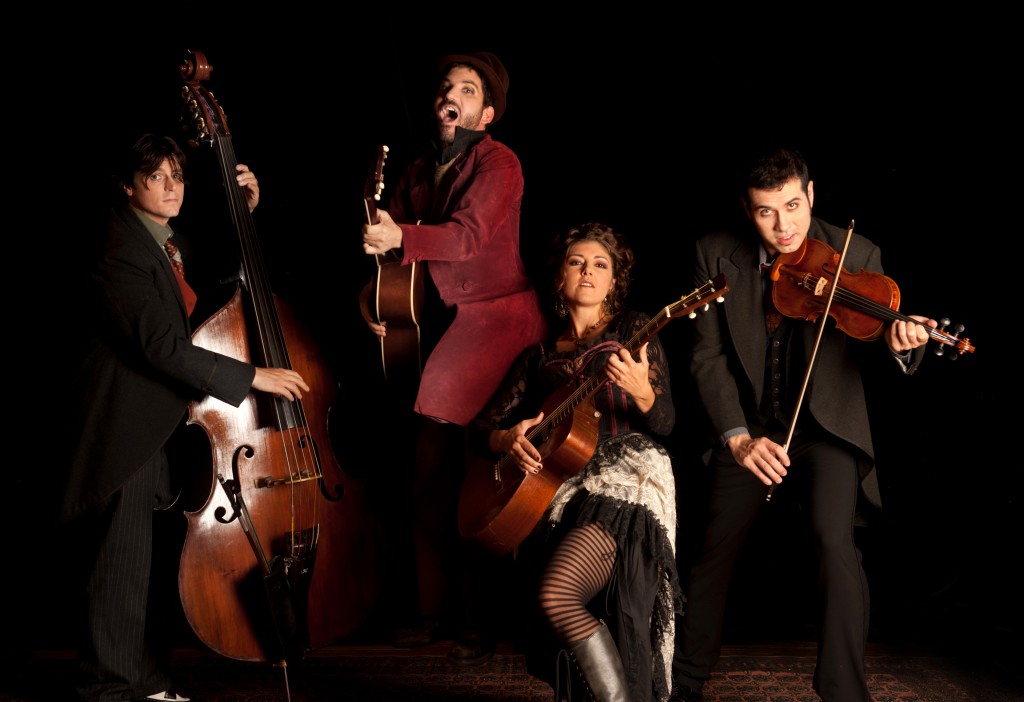 I was also v fortunate this summer to work with Caravan of Thieves at Gold Coast Recorders. The band, joined by producer Steve Lunt, spent three days tracking “Dead Wrong,” a super-catchy track that features their trademark ingenious chordal harmony and double-entendre lyrics. We were aided by an insanely nice handmade Telefunken 251 clone via Telefunken USA, and the mix is by Dave Darlington. Enjoy, and look out for these folks, they tour like mad so they may be coming to yr town soon.
I was also v fortunate this summer to work with Caravan of Thieves at Gold Coast Recorders. The band, joined by producer Steve Lunt, spent three days tracking “Dead Wrong,” a super-catchy track that features their trademark ingenious chordal harmony and double-entendre lyrics. We were aided by an insanely nice handmade Telefunken 251 clone via Telefunken USA, and the mix is by Dave Darlington. Enjoy, and look out for these folks, they tour like mad so they may be coming to yr town soon.
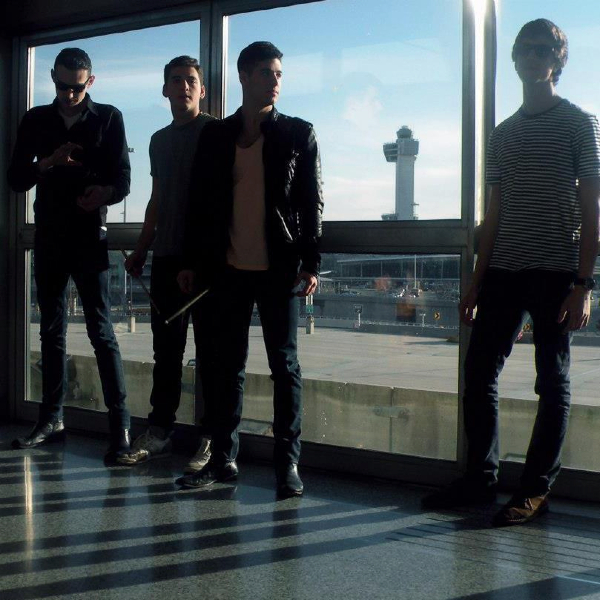 how y’all doing… srry for the dearth of new ‘content,’ it has been hectic up here at PS dot com world hq… ‘makin hay while the sun shines,’ like my uncle Billy always used to say. Anyhow, wanted to LYK that Ula Ruth tracked a new EP with me at Gold Coast Recorders this summer, and via some excellent mixes by the v talented Greg Giorgio, the music will be released early in the new year. Before that happens, tho, they have released the track “Letdown” with a great video that really brings the message home. Enjoy…
how y’all doing… srry for the dearth of new ‘content,’ it has been hectic up here at PS dot com world hq… ‘makin hay while the sun shines,’ like my uncle Billy always used to say. Anyhow, wanted to LYK that Ula Ruth tracked a new EP with me at Gold Coast Recorders this summer, and via some excellent mixes by the v talented Greg Giorgio, the music will be released early in the new year. Before that happens, tho, they have released the track “Letdown” with a great video that really brings the message home. Enjoy…
Electronic Drums of the 1980s
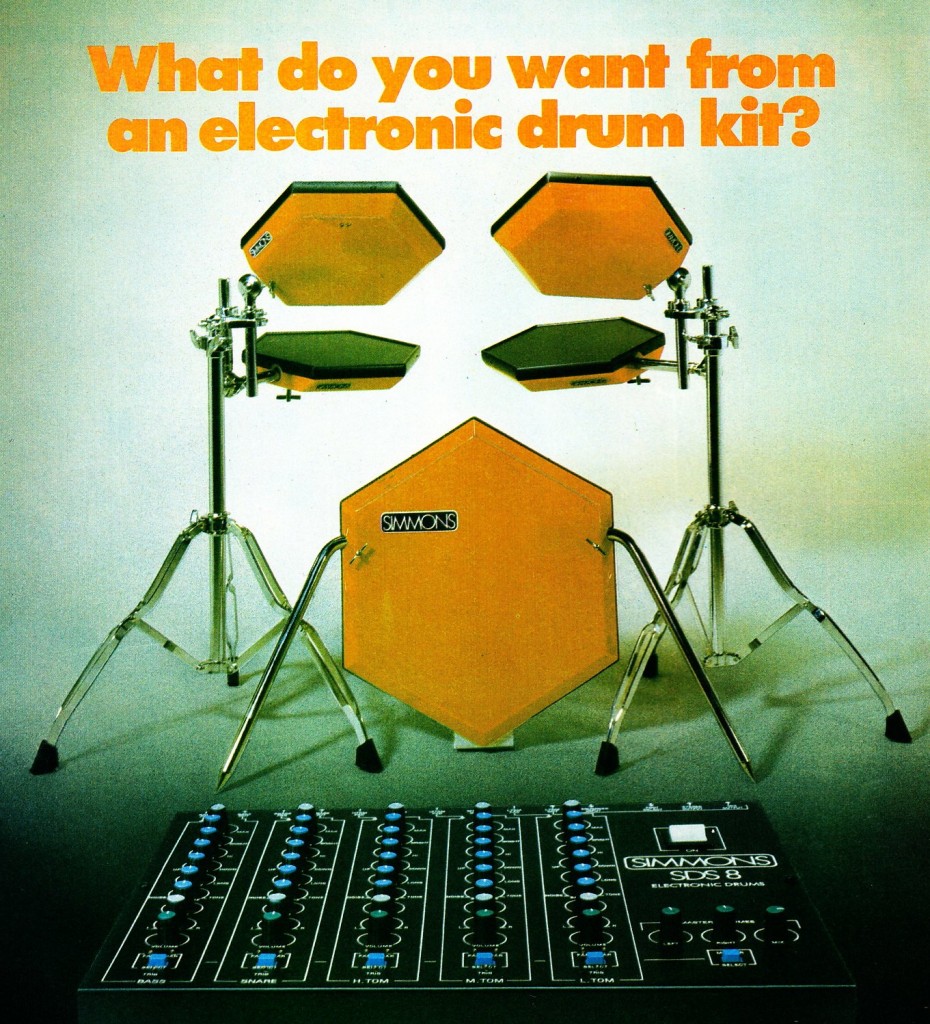 Vintage drum machines, AKA beatboxes, seem to gain value with no end in sight. When I started buying gear heavily around 2000 to aid my composing work, TR808s seemed outrageously expensive at $800-$1000. That’s a good laugh, ain’t it; they are now trading in the $3K – $4k range. Even modest TR606s, CR8000s, Korg KR-55s, etc., are crazy expensive. The same can’t be said for electronic drum kits of that era. I’ve had some old Yamaha electro drums in my basement for a year and i literally can’t give em away. For a brief while, tho, back round 30 years ago, Electronic Drums seemed like maybe the future. Here’s a quick survey of what that future looked like.
Vintage drum machines, AKA beatboxes, seem to gain value with no end in sight. When I started buying gear heavily around 2000 to aid my composing work, TR808s seemed outrageously expensive at $800-$1000. That’s a good laugh, ain’t it; they are now trading in the $3K – $4k range. Even modest TR606s, CR8000s, Korg KR-55s, etc., are crazy expensive. The same can’t be said for electronic drum kits of that era. I’ve had some old Yamaha electro drums in my basement for a year and i literally can’t give em away. For a brief while, tho, back round 30 years ago, Electronic Drums seemed like maybe the future. Here’s a quick survey of what that future looked like.
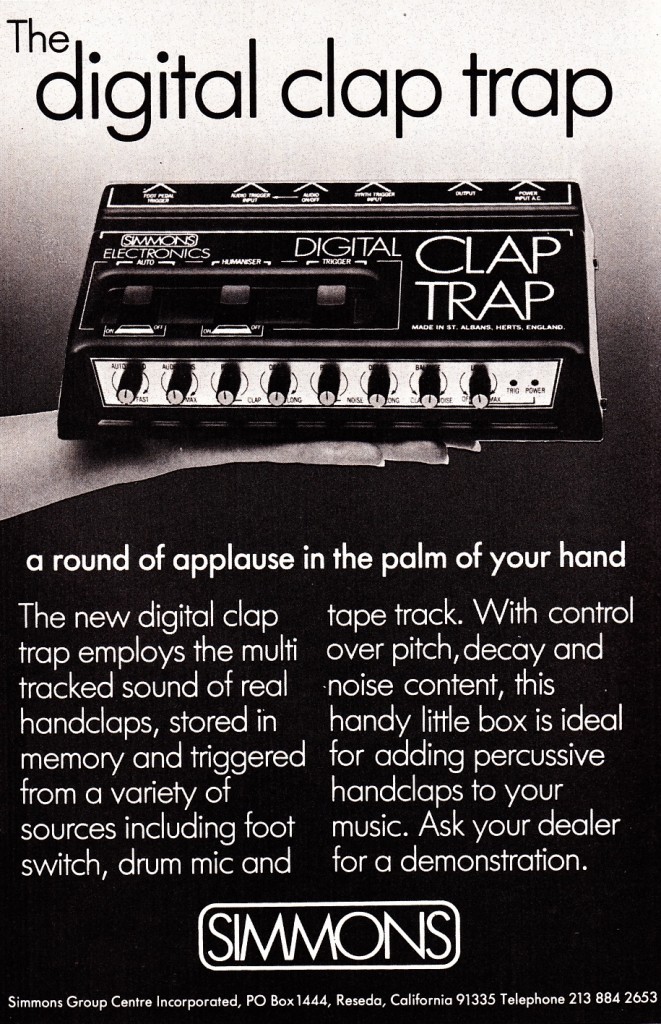
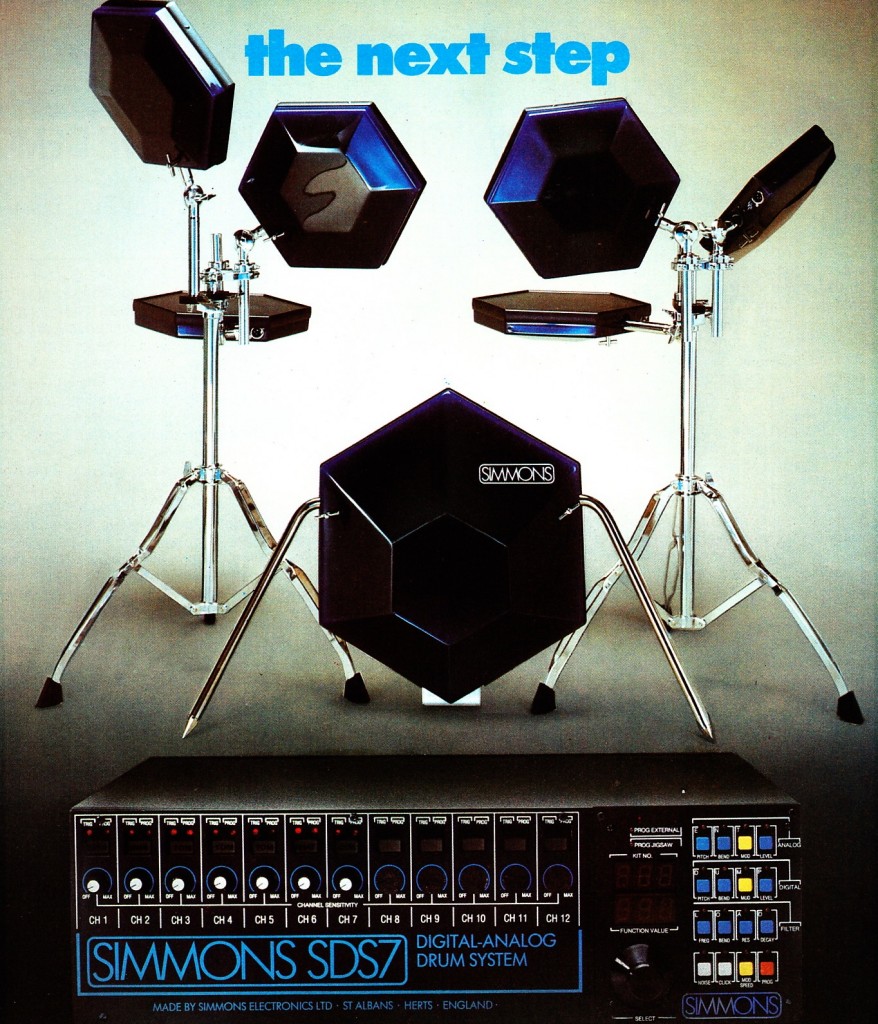
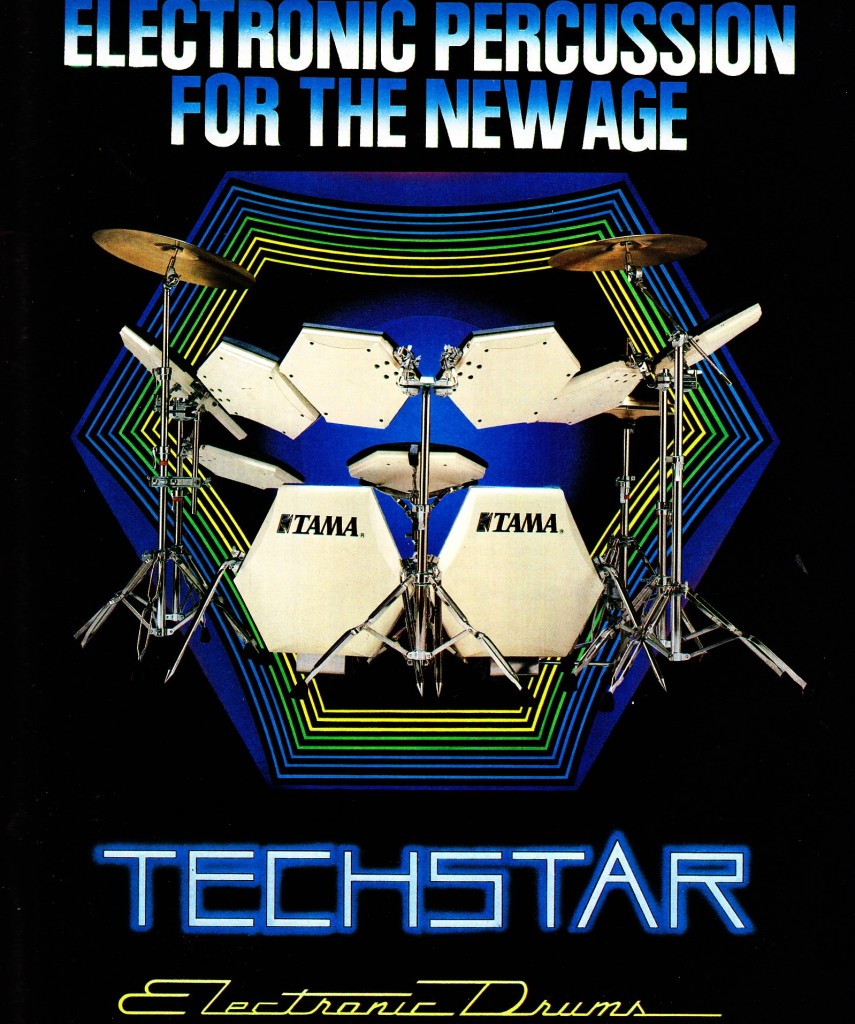
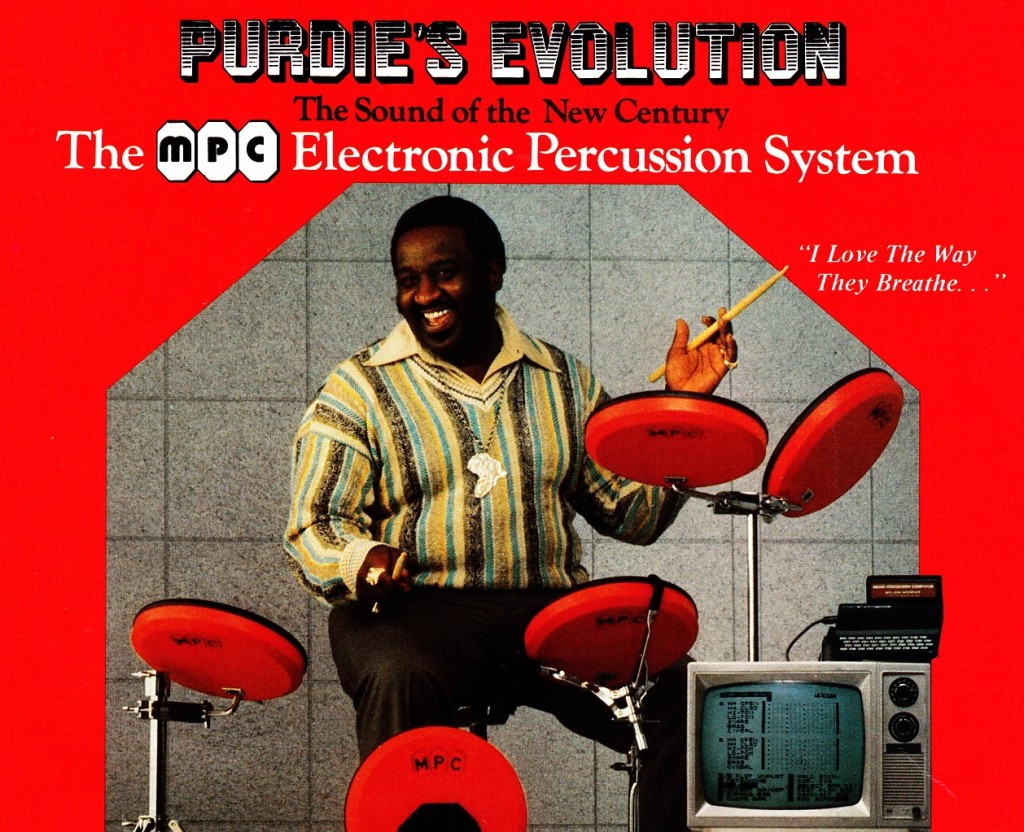
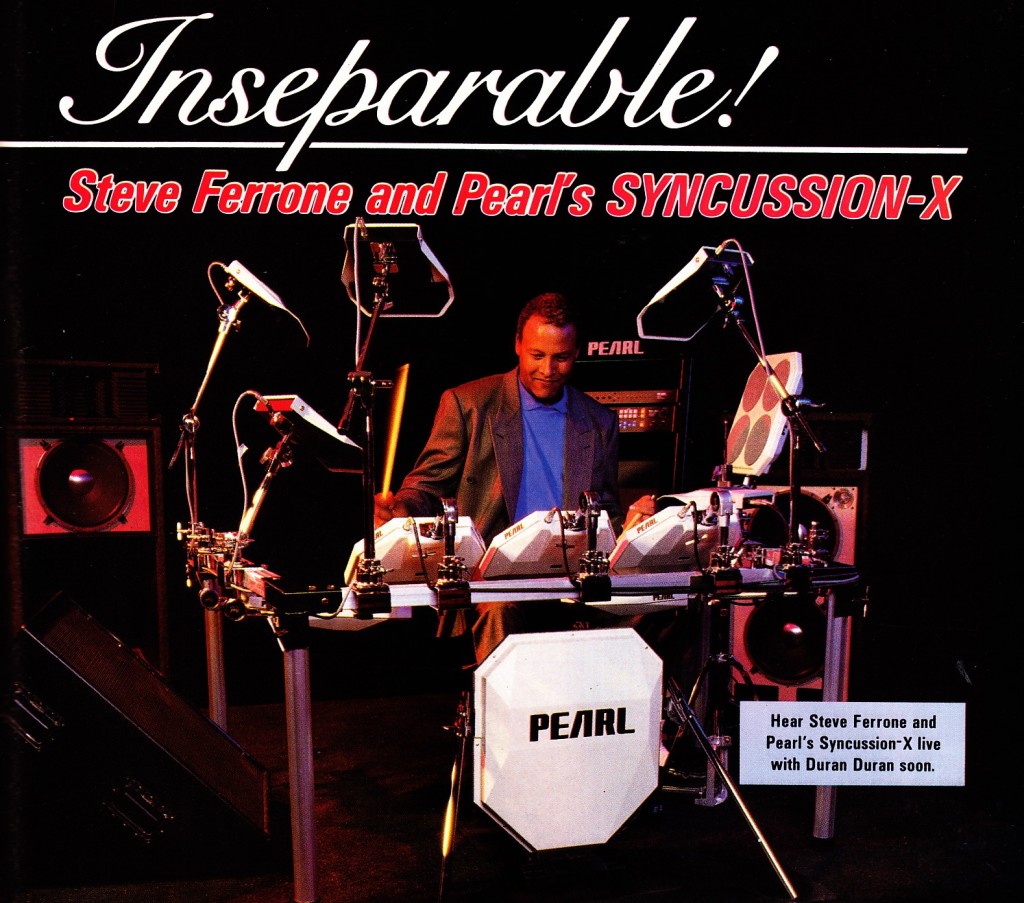
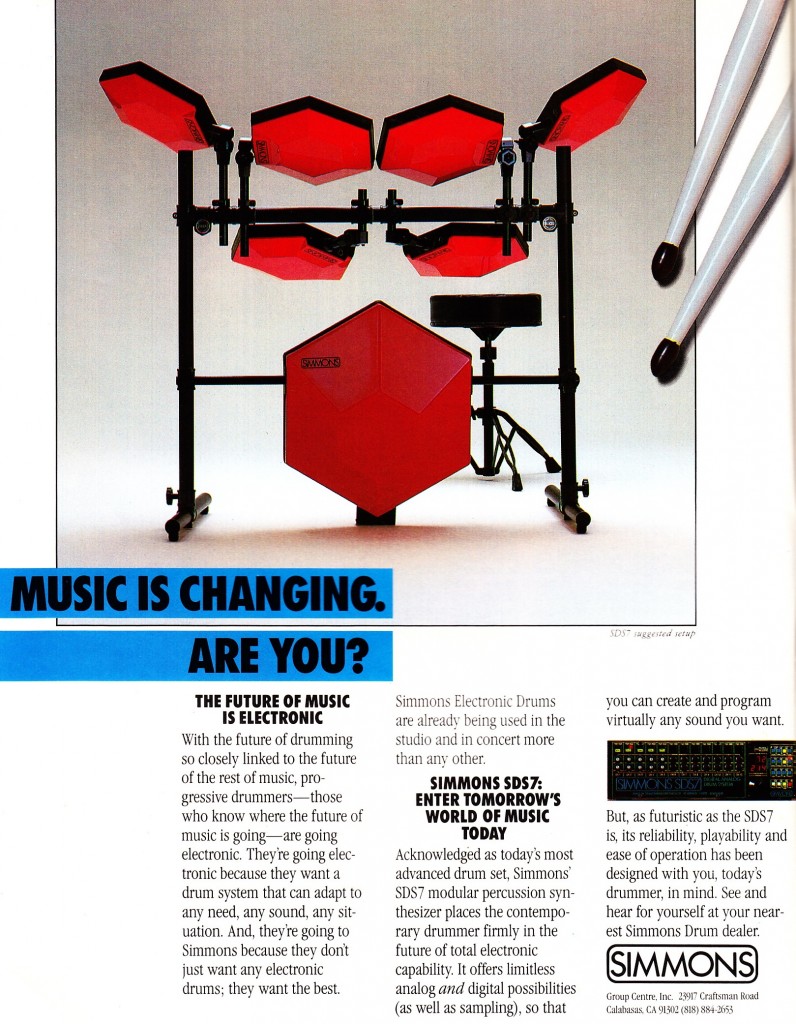 above: Simmons ClapTrap, SDS7, Tama TechStar, MPC (endorsed by Bernard Purdie!!!!) Pearl SynCussionX, and Simmons SDS8 (top)
above: Simmons ClapTrap, SDS7, Tama TechStar, MPC (endorsed by Bernard Purdie!!!!) Pearl SynCussionX, and Simmons SDS8 (top)
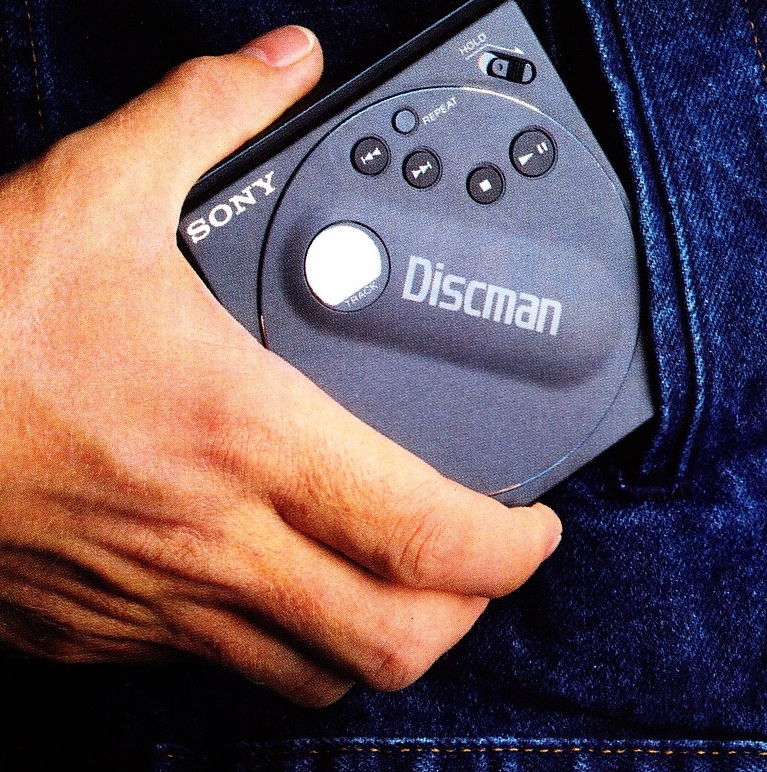 Here’s an odd lil curiosity for ya: in 1988, SONY made a tiny discman sized to play the ill-fated 3″ CD singles that had recently come on the market. The D-88 could also play regular sized discs, albeit with some… protrusion.
Here’s an odd lil curiosity for ya: in 1988, SONY made a tiny discman sized to play the ill-fated 3″ CD singles that had recently come on the market. The D-88 could also play regular sized discs, albeit with some… protrusion.
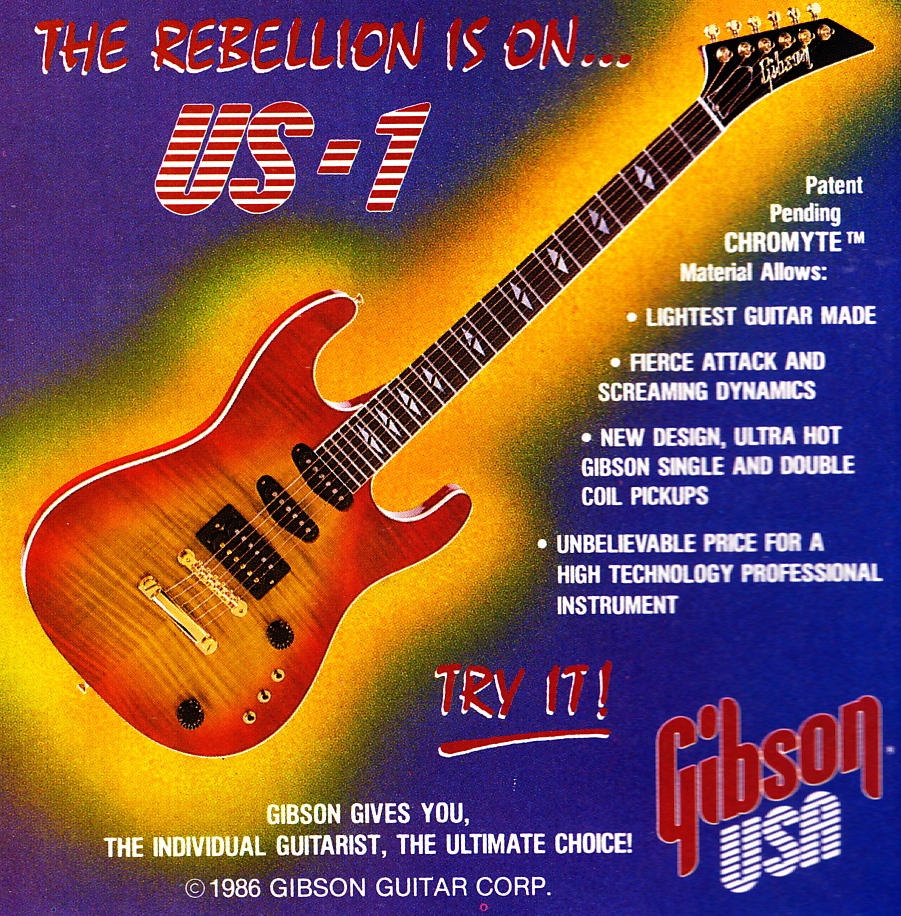 Good lord. Here it is. A dispatch from the absolute nadir of the Gibson musical instrument company. This comp resembles nothing so much as this piece of graphic-design genius earlier described on this site. Who would have guessed that this company, responsible for the best electric and acoustic guitars of the 20th century, would have fallen so low? And even more surprising: that they bounced back in a mere 20 years, becoming the behemoth that they are today?
Good lord. Here it is. A dispatch from the absolute nadir of the Gibson musical instrument company. This comp resembles nothing so much as this piece of graphic-design genius earlier described on this site. Who would have guessed that this company, responsible for the best electric and acoustic guitars of the 20th century, would have fallen so low? And even more surprising: that they bounced back in a mere 20 years, becoming the behemoth that they are today?
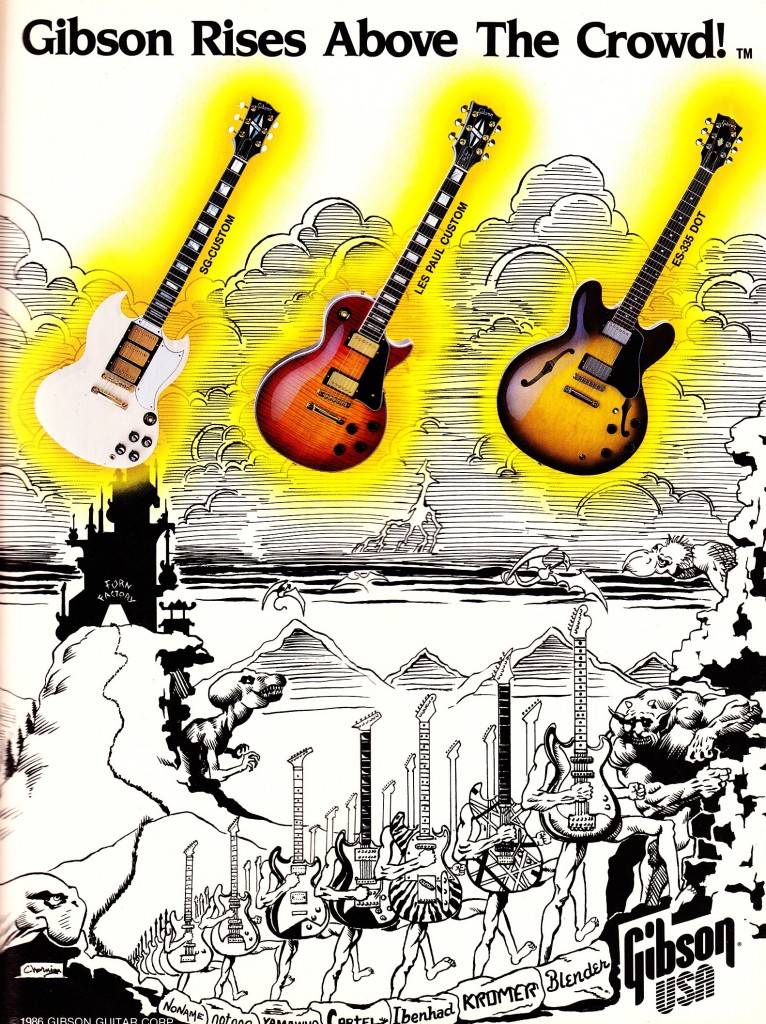 Two years later (1988 – above), Gibson was back to running full-page ads (this one’s for you, RR…). Note the hilarious high-school-notebook-style illustration work which attempts to position Gibson above “NoName, NoTone, Yamawho (Yamaha), Cartel (Charvel), IBenHad (Ibanez), Kromer (Kramer – ???), and Blender (again, don’t really get how this is a dig).
Two years later (1988 – above), Gibson was back to running full-page ads (this one’s for you, RR…). Note the hilarious high-school-notebook-style illustration work which attempts to position Gibson above “NoName, NoTone, Yamawho (Yamaha), Cartel (Charvel), IBenHad (Ibanez), Kromer (Kramer – ???), and Blender (again, don’t really get how this is a dig).
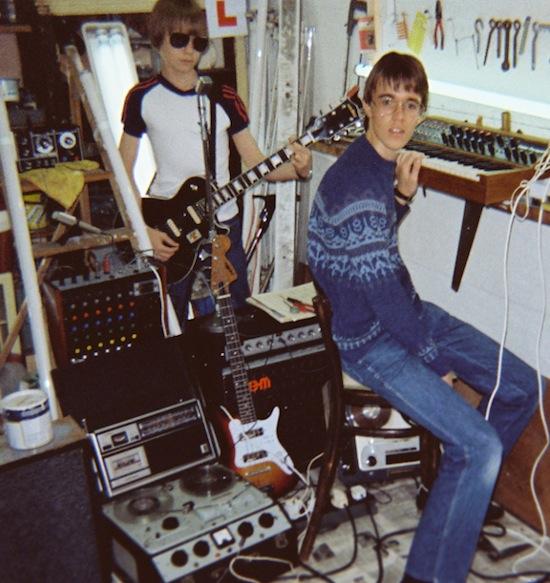 Thanks TW for turning me on to this… fantastic music and a great story! Read on…
Thanks TW for turning me on to this… fantastic music and a great story! Read on…
Computer Music: the 80s
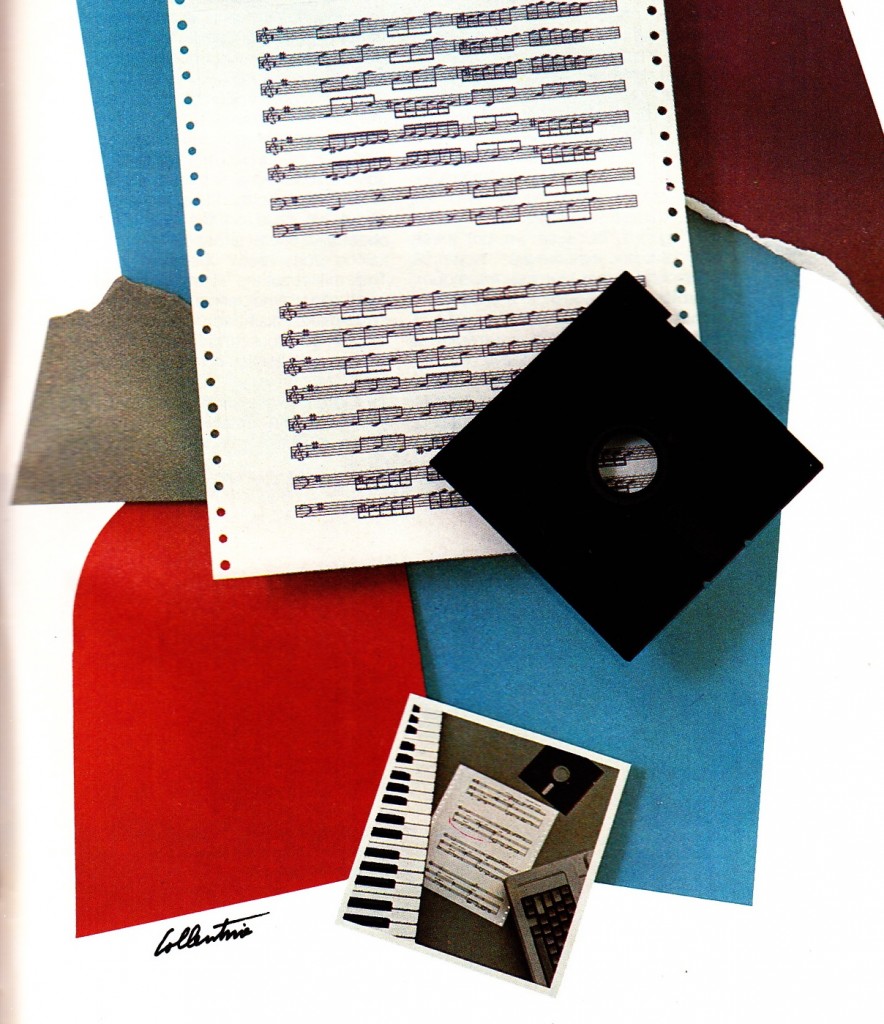 The personal computer is now ubiquitous in the music-making process; music made without a computer is now remarkable for that absence, but not long ago the opposite was true. Here are some glimpses back to the era 1985-1990, when the tide was first beginning to shift.
The personal computer is now ubiquitous in the music-making process; music made without a computer is now remarkable for that absence, but not long ago the opposite was true. Here are some glimpses back to the era 1985-1990, when the tide was first beginning to shift.
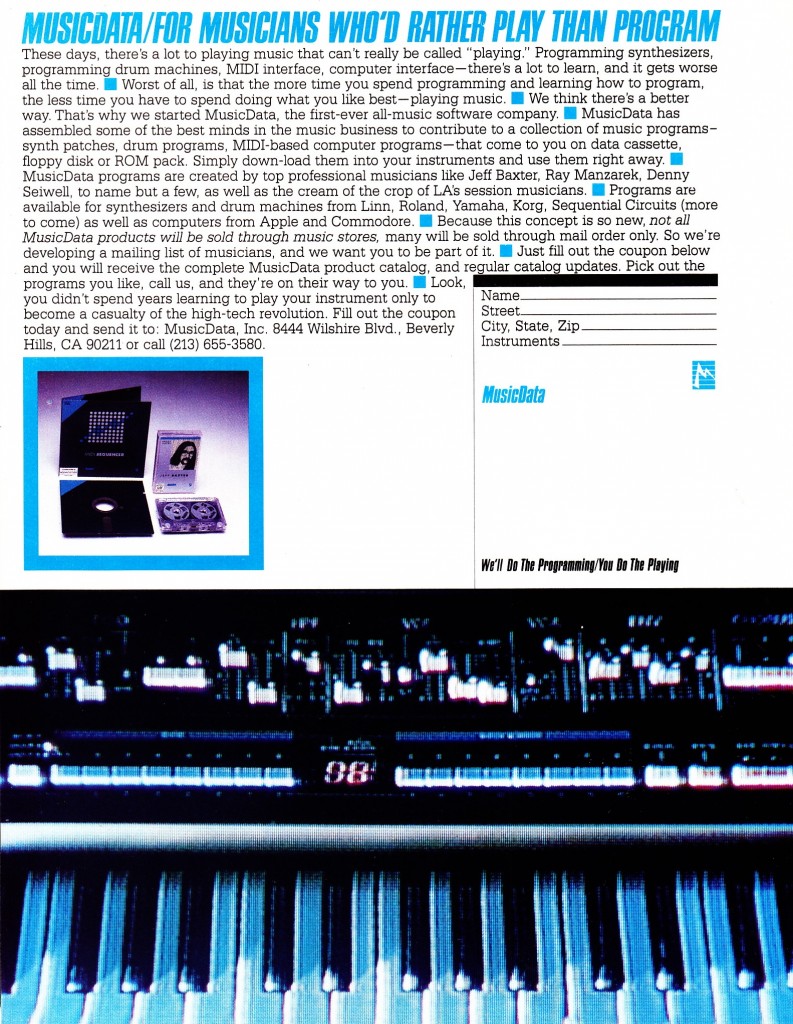 Musicdata (1984): a service that provided programming to musicians who owned computerized instruments, but did not want to engage with them on a technical level. Where are these guys today? anyone?
Musicdata (1984): a service that provided programming to musicians who owned computerized instruments, but did not want to engage with them on a technical level. Where are these guys today? anyone?
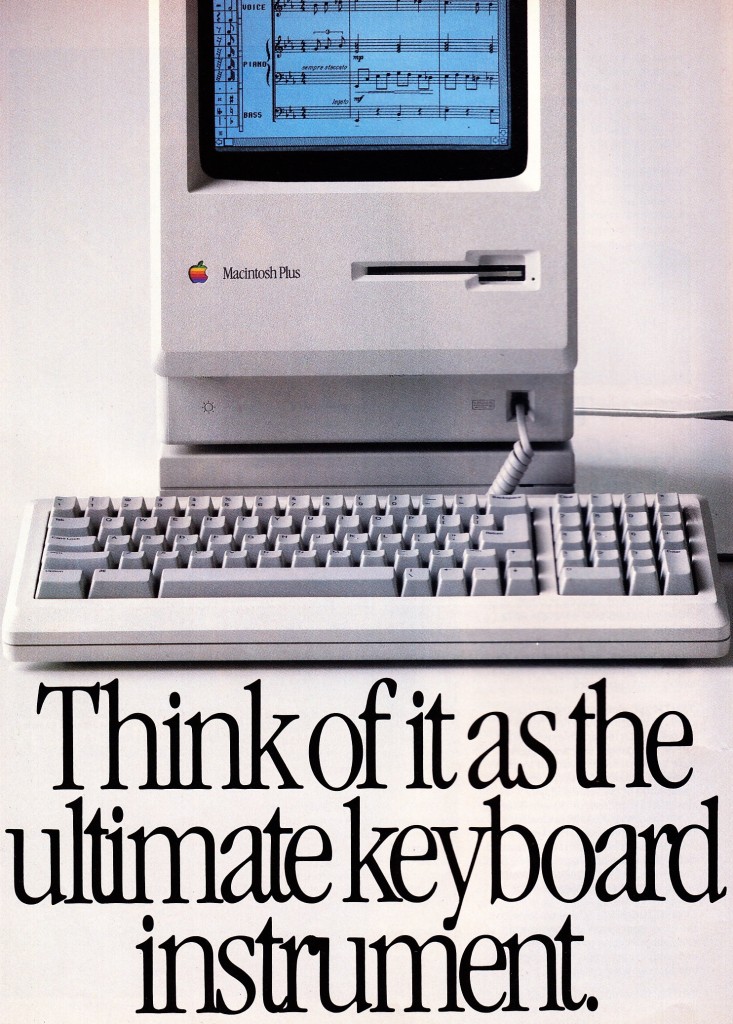 Apple Mac Plus advert c. 1988. Now here’s a bold advertising claim that actually turned out to be true.
Apple Mac Plus advert c. 1988. Now here’s a bold advertising claim that actually turned out to be true.
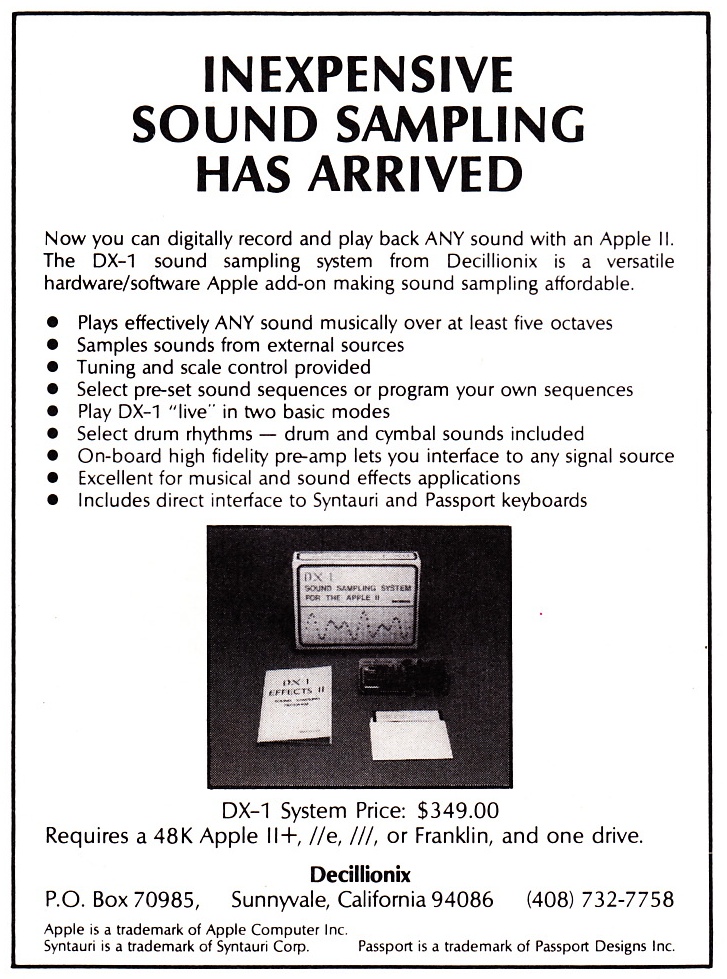 Decillionix of Sunnyvale CA made this $349 audio sample/playback kit for the Mac II in 1984. Pretty advanced stuff for the price. Any users out there?
Decillionix of Sunnyvale CA made this $349 audio sample/playback kit for the Mac II in 1984. Pretty advanced stuff for the price. Any users out there?
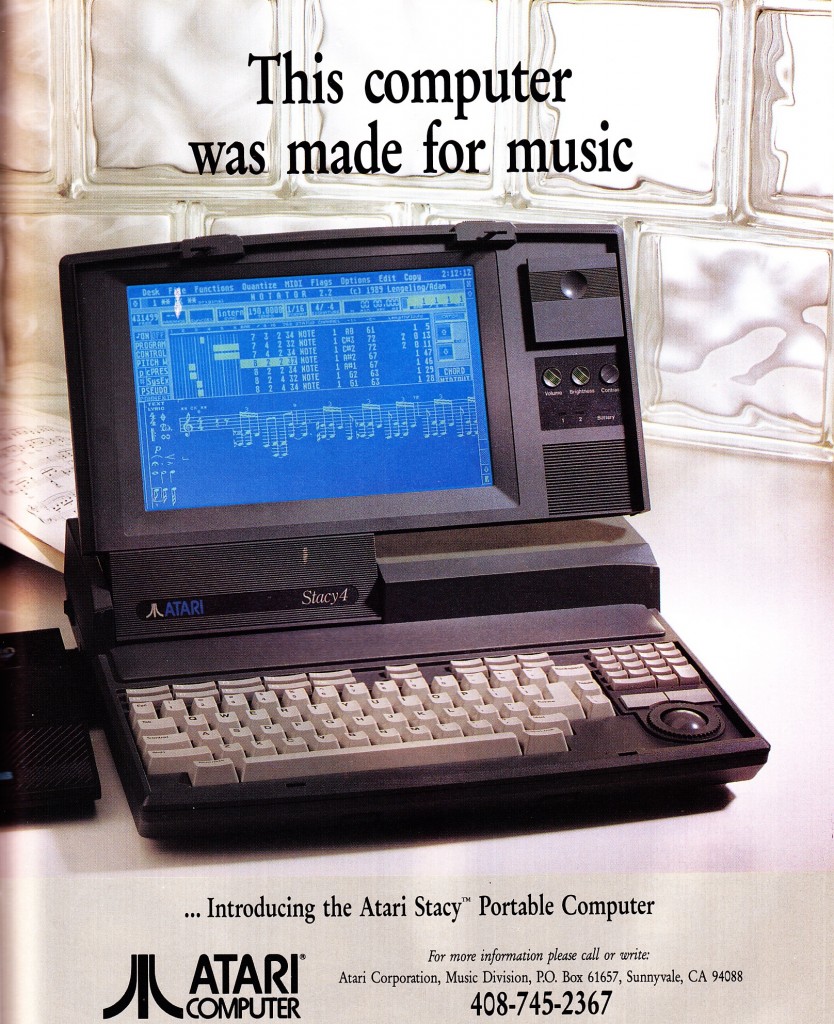 The Atari STACY ‘laptop’ circa 1990. Remember when ATARI was a viable third-party contender?
The Atari STACY ‘laptop’ circa 1990. Remember when ATARI was a viable third-party contender?
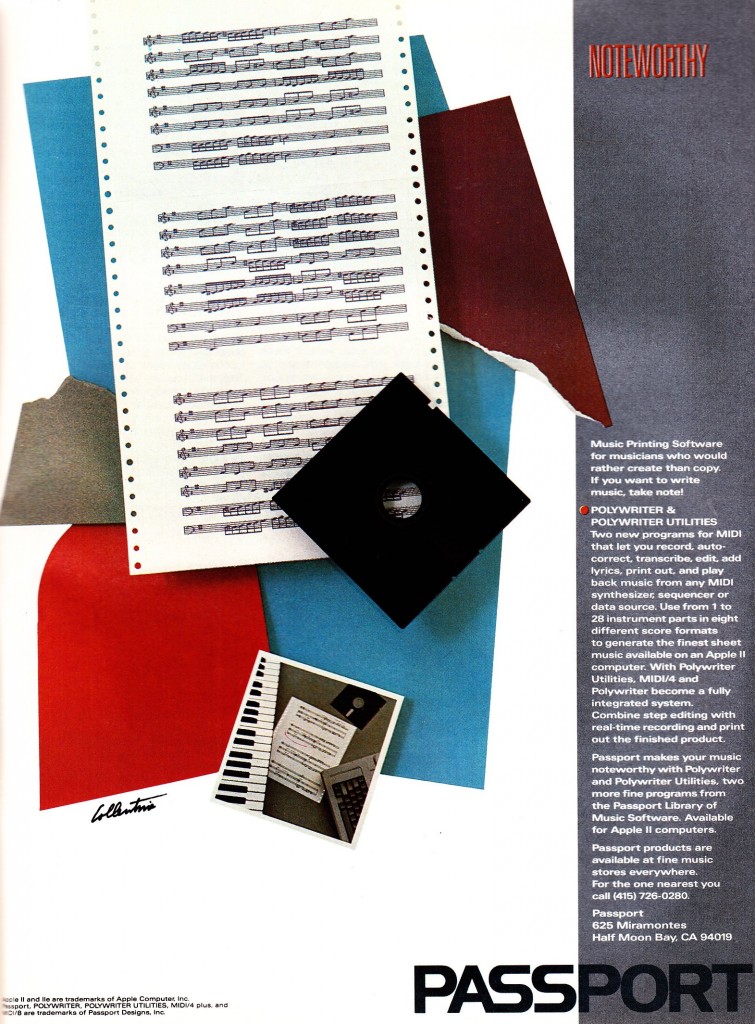 Passport music transcription software c. 1985
Passport music transcription software c. 1985
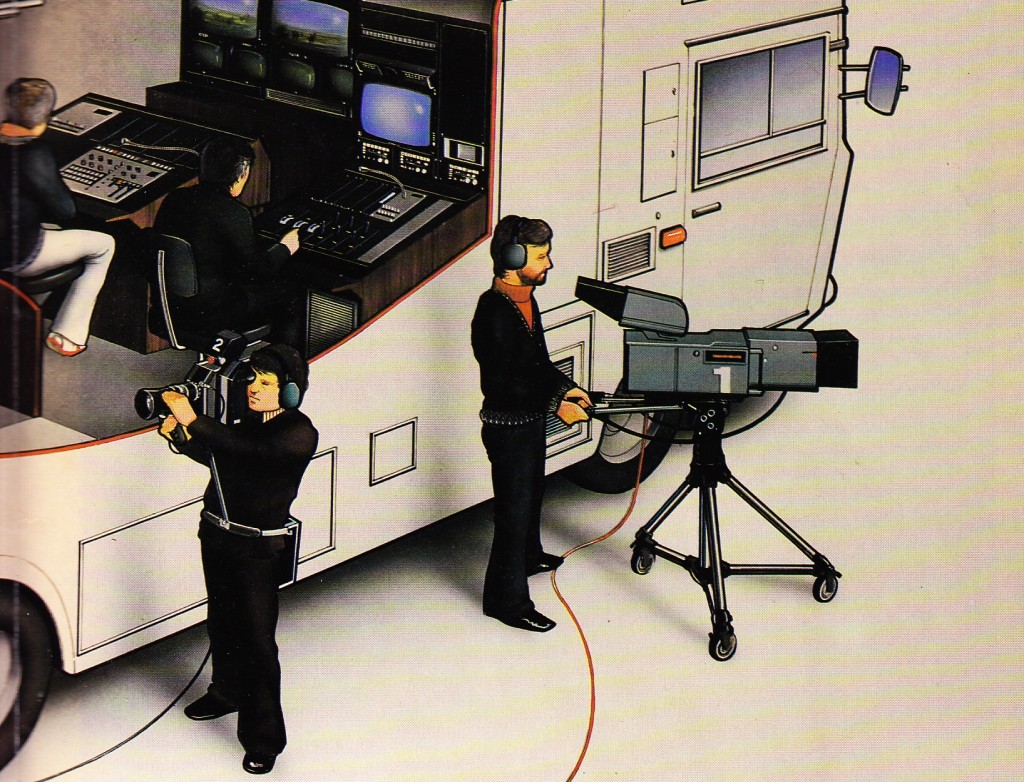 Meanwhile in LegoLand… download an eight-page article from the Philips Broadcast Tripodium 1979 (catalog? Trade Show Book? no idea…) on the subject of a three-camera A/V remote production vehicle as built in 1979:
Meanwhile in LegoLand… download an eight-page article from the Philips Broadcast Tripodium 1979 (catalog? Trade Show Book? no idea…) on the subject of a three-camera A/V remote production vehicle as built in 1979:
DOWNLOAD: Phillips_Remote_Truck_79
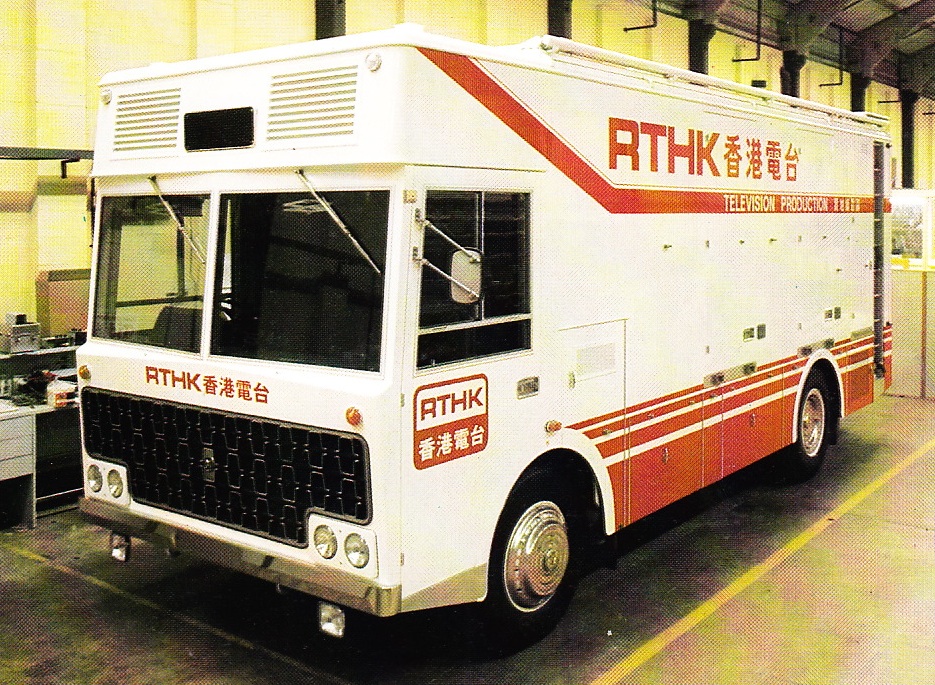
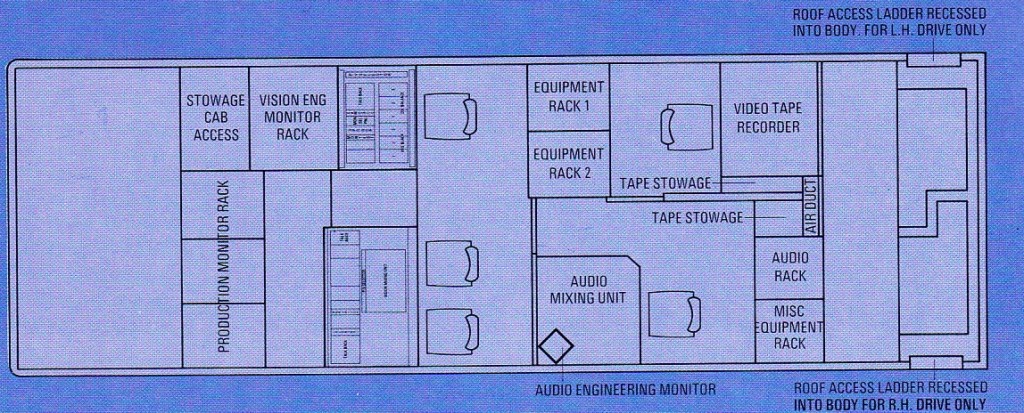 Although this machine is perhaps more a part of video rather than audio history, I came across this arcane publication recently and I though that it might make a nice counterpoint to the Bob Fine Remote Truck article we published last week. The Fine truck, remember, began life as a Film Camera/mono audio truck before becoming a multitrack audio truck. Anyhow, this Philips vehicle (no idea how many of these exist…) manages to pack an entire live-tv-production operation into a 25-foot-long van. Pretty incredible. As depicted in the images above, there is workspace and kit for a video line editor, compositor/chyron artist, sound mixer, tape op, and producer. Pretty incredible…
Although this machine is perhaps more a part of video rather than audio history, I came across this arcane publication recently and I though that it might make a nice counterpoint to the Bob Fine Remote Truck article we published last week. The Fine truck, remember, began life as a Film Camera/mono audio truck before becoming a multitrack audio truck. Anyhow, this Philips vehicle (no idea how many of these exist…) manages to pack an entire live-tv-production operation into a 25-foot-long van. Pretty incredible. As depicted in the images above, there is workspace and kit for a video line editor, compositor/chyron artist, sound mixer, tape op, and producer. Pretty incredible…
Anyone out there operating a DIY remote truck today? Tell us about it!
